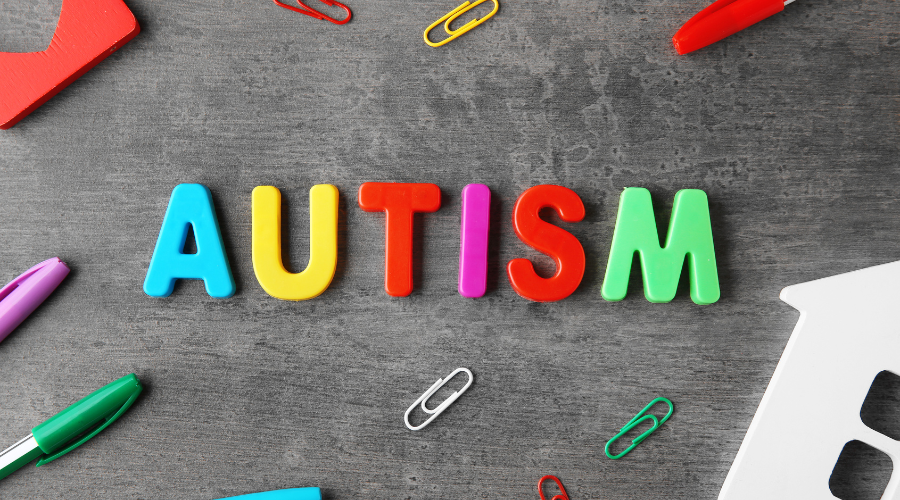Autism Spectrum Disorder (ASD) is a neurodevelopmental disorder that affects approximately 1 in 100 people. Individuals with ASD have problems with social communication and interaction as well as restricted, repetitive interests and behaviours. These symptoms make life very challenging for someone with ASD. Signs of ASD usually manifest before the age of 3 years old, however many children do not receive a diagnosis until they are older and some people are not diagnosed until they are adults. Here are some of the key characteristics of ASD in children.
Examples of social communication and interaction difficulties in ASD in children include:
- Avoids eye contact or has trouble maintaining eye contact
- Does not respond, or rarely responds, to their name during infancy
- Does not show a range of facial expressions like happy, sad, angry or surprised
- Shows inappropriate facial expressions
- Uses few or no gestures (e.g. waving goodbye)
- Does not share interests with others
- Does not point to show you something they are interested in
- Has trouble noticing when others are hurt or upset
- Shows little interest in other children and does not join them in play
- Has difficulty engaging in imaginative play
- Does not sing, dance or act for you
Examples of Restricted, Repetitive Behaviours and Interests:
- Lines up toys or other objects and gets upset when order is changed
- Repeats words or phrases over and over (known as echolalia)
- Plays with toys in a restricted manner (i.e. in the same way every time)
- Is focused on parts of objects (e.g. wheels of toy cars)
- Gets upset by minor changes
- Must follow certain routines
- Shows unusual or obsessive interests
- Flaps hands, rocks body, or spins self repetitively in circles
- Has unusual reactions to the way things feel, sound, smell, taste, or look
Other characteristics of ASD:
- Delayed language skills
- Delayed movement skills
- Delayed cognitive or learning skills
- Hyperactivity, impulsivity or difficulty focusing their attention
- Unusual eating and sleeping habits
- Unusual emotional reactions
Assessment of ASD in children:
Early detection and treatment of ASD is important in improving long-term outcomes. If you are concerned that your child might have ASD, an assessment may be warranted.
At Eastside Psychology Clinic, ASD assessments for children involves administration of the Autism Diagnostic Interview – Revised Edition (ADI-R) and the Autism Diagnostic Observation Schedule – 2nd Edition (ADOS-2) to assist with the diagnostic evaluation process. Both the ADI-R and the ADOS-2 are considered gold standard testing tools for ASD.
To support treatment planning, assessment of a child’s daily living skills using the Adaptive Behaviour Assessment System – 3rd Edition (ABAS-3) may also be undertaken.
An ASD assessment for children usually takes approximately 3 hours.
Cost: The fee for an ASD assessment for children is $1700. Medicare rebates are available if you are referred by a GP or specialist doctor.
To make an enquiry about ASD assessments for children, please get in touch.

